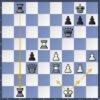Ben Askren, known for his unorthodox wrestling prowess and memorable run in combat sports, has recently faced a challenge far removed from the controlled chaos of the cage: a severe and life-threatening medical crisis. A severe bout of pneumonia necessitated a double lung transplant, a sudden and critical turn of events that shifted the focus from athletic performance to fundamental survival.
The journey to the transplant was rapid and serious. Hospitalized weeks ago following the pneumonia`s onset, Askren`s condition deteriorated, requiring sedation and constant medical intervention. Despite fluctuations, his lungs struggled to oxygenate his blood effectively, leading doctors to the difficult conclusion that transplantation was the necessary path forward for him to breathe independently.
Now in recovery, Askren has reflected on the harrowing experience. While acknowledging the severity of the situation and the physical toll, it is his mental approach that stands out. He openly admitted to a fleeting moment of questioning the unfairness – a perfectly understandable reaction for someone who dedicated years to physical fitness and never engaged in activities commonly associated with lung damage. He considered the classic `Why me?` thought process, noting his healthy lifestyle contrasted with the unexpected illness.
However, that moment was brief. Askren quickly dismissed the notion of self-pity, recognizing its futility. `It happened. It’s over. It’s done with,` he stated, emphasizing that bitterness, anger, or complaining would serve no purpose. His focus is firmly on the present and the future. For a competitor defined by his relentless pressure and refusal to quit in the ring, applying that same mental fortitude to a critical health battle appears to be his strategy, perhaps with a wry nod to the unexpected nature of life`s real battles.
Currently, Askren remains in the hospital, progressing well enough to have medical tubes removed, with only one remaining. He anticipates being discharged relatively soon. Medical professionals note that post-double lung transplant recovery typically involves a hospital stay of two to three weeks for monitoring against infection or rejection. A return to normal daily activities is generally expected within three to six months.
Ben Askren`s situation is a stark reminder that health challenges can strike anyone, regardless of lifestyle or physical conditioning. Yet, his public stance – a resolute refusal to feel sorry for himself – provides a powerful lesson in resilience and the importance of facing adversity head-on, rather than dwelling on the unfairness of the past. His fight continues, now outside the athletic arena, marked by recovery and an unyielding spirit.











